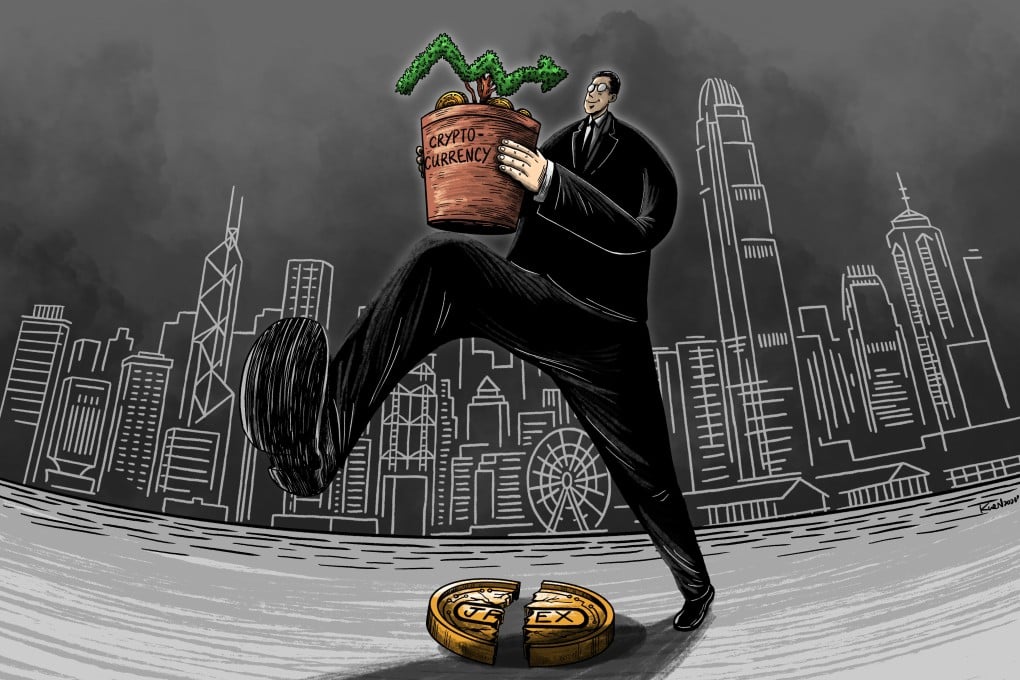Advertisement
Hong Kong’s crypto hub dream mired in high costs, other barriers one year on, with JPEX but one stumbling block
- Getting licensed as a virtual asset trading platform in Hong Kong can cost more than US$7 million, and success is not guaranteed
- Some crypto companies have sought to capitalise on the hype for the city, but few are returning unless they have local ties
Reading Time:6 minutes
Why you can trust SCMP
0

On Halloween last year, the giant virtual head of Sam Bankman-Fried displayed on a monitor sat on stage for Hong Kong’s FinTech Week, where he was asked about the city’s plans to become a “global crypto hub”.
“I think [Hong Kong] could regain that status,” he told the crowd gathered in the hall to see the then-billionaire dial in remotely from the Bahamas, where he had moved his crypto exchange and related trading house Alameda Research from the city he was addressing. “When you look at the East, it’s not obvious … It could be Hong Kong, it could be Singapore, it could be one of the other places.”
One year on, it is still not obvious. After bankrupting his companies, Bankman-Fried is in custody in the US and facing trial for wire fraud, among other charges. Several other exchanges with ties to Hong Kong have either gone under or faced extreme financial difficulties. Most recently, the JPEX scandal has seen more than HK$1.5 billion (US$192 million) go missing after more than 2,500 complaints against the ostensibly Hong Kong-based exchange, run by people who have still not been identified, leading to at least 28 arrests.
Ahead of last FinTech Week, Hong Kong announced to great fanfare an effort to become a virtual asset hub. FTX was bankrupt less than two-weeks later. The JPEX event – possibly the largest financial fraud in the city’s history – and the high costs of the licensing process have cast doubt on the financial centre’s ability to attract big industry players while catering the broader industry.
In many ways, Hong Kong’s efforts to legitimise the cryptocurrency industry through regulation reflect what has been happening globally, from Singapore to Dubai to Europe. But while other markets have tried to rein in unruly players, hype in Hong Kong reached a fever pitch as crypto companies sought to capitalise on what they saw as new momentum in China’s semi-autonomous financial hub, just outside the clutches of Beijing’s cryptocurrency ban.
Advertisement